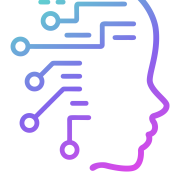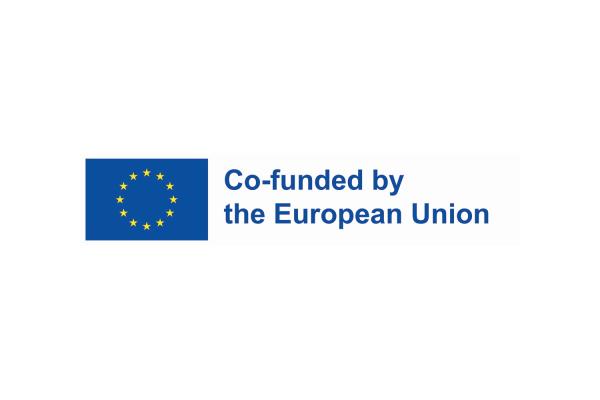Preparing Teachers for the AI Development in Education as an Innovative Asset


Brief information about the PAIDEIA project
The PAIDEIA project, funded by the Erasmus+ Partnerships for Innovation -Forward-Looking Projects programme, is a ground-breaking initiative designed to bridge the gap between advances in Artificial Intelligence (AI) and educational practices. With the project's primary focus being educators and equipping them with the necessary skills and knowledge about AI, PAIDEIA aims to foster school environments where technology enhances the learning experience and outcomes. This endeavour aims not only to prepare educators for the digital age, but also to ensure that they are well versed in the ethical, social and practical implications of AI in education.
Among the ambitious goals of the project are the development of a Competency Framework that outlines core competencies in AI for educators and ensures that they are equipped to effectively integrate AI tools and methodologies into teaching and learning processes, the development of a set of educational resources and training materials designed to equip educators with the skills to apply AI technologies in their pedagogical practices, the creation of a platform for ongoing dialogue between educators, policy makers, s
Partners and collaboration
Consortium composition
The PAIDEIA project boasts a diverse consortium that brings together a wide range of expertise from across Europe, including universities, research institutions and education authorities. Each partner contributes a unique set of skills and knowledge, creating a solid foundation for the ambitious goals of the project. The composition of the consortium is deliberately diverse, ensuring a wide range of perspectives and expertise that enrich the outcomes and relevance of the project in different educational contexts.
- The universities provide academic rigor, research capacity, and theoretical frameworks that are essential to the development of the AI&ED competency framework and learning materials.
- Research institutions contribute cutting-edge technological insights and innovations, ensuring that project approaches are grounded in the latest advances in AI.
- Educational institutions offer practical insights into the needs and challenges of educators and learners, ensuring that project outputs are relevant, accessible and easily integrated into existing education systems.
The philosophy of the partnership involves first and foremost public institutions with a specific role in promoting the impact of PAIDEIA at policy level (producing and disseminating PAIDEIA recommendations and outputs at policy level) and the impact the project aims to achieve at the level of education and training ecosystems. Participating public institutions will work as "antennae" to create links with policy makers and to promote the forward-looking approaches that the project aims to foster. The Maltese Ministry of Education, Sport, Youth, Research and Innovation (MEYR), through its Directorate for Digital Literacy and Transversal Skills (DDLTS), promotes the creation and strengthening of digital skills in schools and participates in the EU framework for the assessment of DI in education. Policy development and commissioning activities will be led by MEYR. Institutional co-applicants will work in sync in defining a roadmap for a sustainability and exploitation action plan and will lead the partnership in exploitation through communication activities. This network of public institutions will be responsible for producing guidelines and recommendations addressed to EU policy makers, at national/regional level, on how to ensure gender equality and equity in institutional communication to ensure impartiality and equity of documents and to enable institutional co-applicants to engage closely with their counterparts from other EU countries. DCU will support these activities by establishing a network for the application of AI
- The Aragon district aims at institutional teacher training. It is also responsible for the implementation of digital skills at every level of education.The Regional School Office of Tuscany is the public Italian body responsible for teacher training and the introduction of digital skills.
- The Tuscany region is important for the Italian educational organisation as it is one of the most important regions in terms of number of teachers and students.
- The Istanbul Governorate, together with the Provincial Directorate for National Education, has extensive experience in disseminating new approaches to teacher training and is actively involved in the coordination of the Erasmus+ programme at national level.
- The National Education Inspectorate NIE is the Bulgarian Education Inspectorate, established as a legal entity under the Council of Ministers with its seat in Sofia. Among its other institutional duties, the NIE is responsible for the implementation of the national education standards for inclusive education in the country. The Inspectorate has a role in promoting teacher and teacher education programmes and participates in the European Network of State Inspectorates
A significant group of universities, led by Dublin City University, in collaboration with the University of Milan, will have the task of analysing and verifying the state of research, taking into account the actual level of research in the field of the application of artificial intelligence in education and the position papers produced by the EU institution. Universities will also be involved in the development of the curricula and in defining the framework, which is the main outcome of PAIDEIA.
The universities are:
-Dublin City University, Ireland: a research and teaching institution with strengths in the application of digital skills in innovative machine learning systems.
-University of San Jorge in Zaragoza, Spain: a research and teaching institution with a particular focus on the impact of the application of new digital innovations in education on inclusion processes and policies, with a particular focus on cultural inclusion and the participation of vulnerable categories of students.
-UCLL University of Applied Sciences, Leuven, Limburg, Belgium: has particular experience in implementing DigiCompEdu, especially with teachers at every level of the school system. It also has experience in training teachers in digital skills.
-Università degli Studi di Milano, Italy: has vast experience in methodologies to combat and prevent the spread of fake news and misinformation. His experience will be relevant for the proper reporting of a methodology to raise the level of critical thinking of students, thanks to the appropriate emphasis placed in the curriculum that the project intends to prepare.
- Fondazione Hallgarten-Franchetti Centro Studi Montesca, Italy
- Dublin Citty University, Ireland
- UC Leuven, Belgium
- Universita Degli Studi di Milano, Italy
- Fundacion Universidasd San Jorge, Spain
- Istambul Valiligi, Turkey
- National Inspectorate of Education, Bulgaria
- Ministry for education, Sport and Youth, Malta
- Gobierno de Aragon. Departamen de Education, Spain
- Ufficio Scolastico Regionale per la Toscana, Italy
- Centre for Educational Initiatives, Bulgaria
- UC Limburg, Belgium
The work plan consists of six work packages that reflect a logical structure in order to establish, support and manage the gradual implementation of the research and action project proposal.
1. WP2 - Exploring how traditional and experimental student-centred pedagogies can be adapted to challenge AI teaching practices to influence professional development and the role of the teacher.
2. WP3 - create a competency framework to update teachers' skills with a view to transforming teaching approaches in the use of AI and ELT (so as to foster the skills and capabilities that would be central to the teacher's role as a catalyst in the sequencing and organisation of AI-based teaching and learning).
WP3 - Align the AI and Education Competency Framework with existing competency frameworks such as DigCompEdu, in addition to other initiatives such as HLEG's 'Policy and Investment Recommendations on AI' and the Digital Education Action Plan 2021-2027.
4. implementing a scalable approach in the creation of spiral curricula on AI and CI and developing training materials for teachers to develop awareness, competence and skills to teach using AI and CI in a pedagogically rich and ethical way.
5. WP 4 - Experimenting/testing the curriculum in authentic contexts with teachers from all participating countries.
6. WP 5 - based on the impact and outcomes of the PAIDEIA project, develop specific stakeholder guidance and evidence-based recommendations for policy makers. ta of education, digital literacy, AI&ED, digital research and socio-educational processes.


